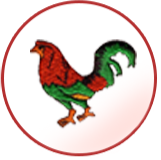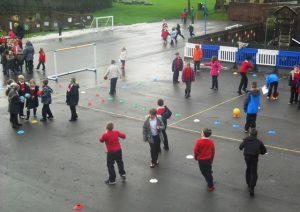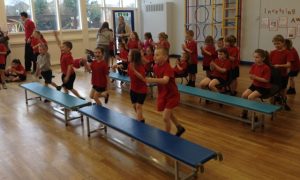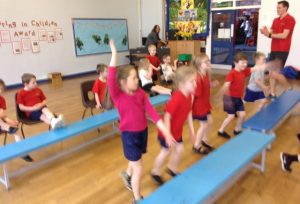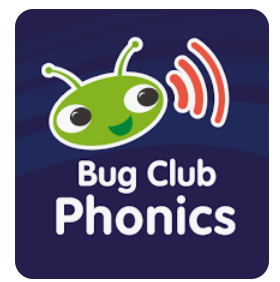
At Cockfield Primary school reading is at the heart of everything we do; learning to read allows children to open the door to the wider world and unlock their imaginations. We are passionately driven to enable children to develop both the technical skills of reading, and also generating a love for literature and reading, which will stay with them forever.
For full details of our approach to reading including our phonics progression, please read our Reading Strategy by clicking on the link: Cockfield Primary School Reading Strategy
Within our broader English Curriculum planning, our intent for reading is clear:
We aim
- to instil a love of reading for each child.
- to expose all children to a wealth of language rich texts.
- to develop independent and resilient readers.
- to develop comprehension skills enabling children to gain a deeper knowledge and understanding of literature.
- to expose children to a world of words to take with them on their learning journey.
- to ensure that with few exceptions all children reach the expected standard in phonics in Y1 and become fluent, confident early readers by the end of year 2 so that they can access and comprehend all that key stage 2 has to offer.
Phonics at Cockfield
Phonics is the first stepping-stone to reading. At Cockfield we know that effective teaching of phonics is integral to reading success. The Keep Up Not Catch Up philosophy is central to our vision for teaching phonics. It is rooted in the highest expectations of what children can achieve and leads to excellent outcomes. Keep Up Not Catch Up is the relentless determination that no child will fall behind.
Reading is not an innate skill – and therefore it is something that needs to be directly taught. Children do not learn to read by accident, or by being given books to ‘read’ with sounds in which they have not been taught. Our Early Reading scheme (Bug Club) has been carefully chosen to ensure that sounds are taught progressively and home reading books are closely linked to the sounds that have been taught.
Therefore children’s confidence when reading is developed alongside their reading ability because children do not encounter words which they cannot decode. As children become more confident readers, their books also include the ‘Common Exception Words’ which children have been taught within the phonic scheme.
We believe all staff need a firm foundation in early reading skills to support struggling readers at all ages. Therefore, our teaching and support staff have been trained in the systematic, synthetic phonics programme ‘Bug Club Phonics’. This begins very early on when children join Reception and continues until a child is a confident and competent reader and speller.
Bug Club is a systematic and progressive scheme which teaches the 26 letters and 44 phonemes in a structured and fun way. This also includes the teaching of “high frequency words” which although can be decoded with high level phonic knowledge are best taught as sight words.
The knowledge of sounds and symbols is an important starting point for understanding and using written language and we believe that a strong and consistent approach to the teaching of phonics is vital for our children to begin to access the rest of the curriculum. This is, however, used in conjunction with many other strategies to help children to begin to read and write.
The phonic progression overview can be found below.
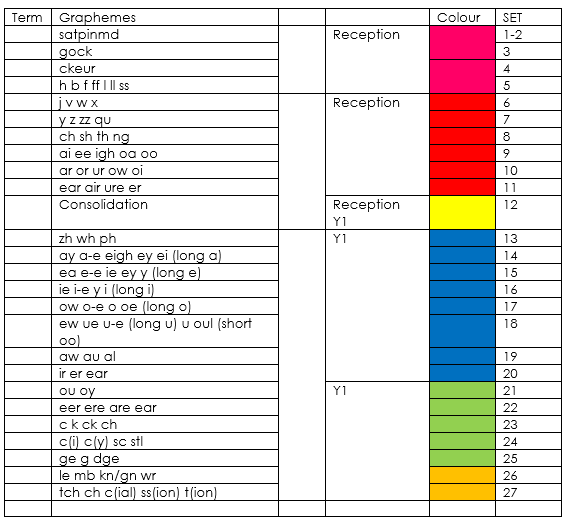
All children in Reception and Year 1 classes will receive at least one daily phonics session. We believe in a mastery approach to phonics where all children are exposed to whole class teaching.
As much as practicably possible, children will move through the order of sounds together: children who need extra support to catch up will be prioritised between sessions, to ensure that learning gaps do not appear, or widen over time.
The teacher is responsible for the teaching of phonics to all children; well qualified teaching assistants support the teaching and intervention, but the teacher has responsibility for the learning of all children.
Children’s growing phonic knowledge is closely assessed and tracked, away from the point of teaching, to ensure that all staff know children’s strengths and areas to practise in reading. Home phonic reading books are targeted appropriately and are changed regularly.
Phonics Help for Parents
Home Reading Expectations
| Reception | Children take a phonic book home which is matched to the appropriate phonic phase which has been taught.
We aim to change reading books three times a week. In addition to these children choose a reading for pleasure book which can be shared and enjoyed at home. |
| Year 1 | Children take a phonic book home which is matched to the appropriate phonic phase which has been taught.
We aim to change reading books three times a week. In addition to these children choose a reading for pleasure book which can be shared and enjoyed at home. |
| Year 2 & Beyond | Once phase 6 has been completed children can choose an appropriate levelled Accelerated Reader book. They can read this at their own pace. However, the school expects children read at least 5 times a week to maximise their reading progress. Once the book is completed, they then take a reading quiz and can choose a new book. |
After phonics, what’s next?
When children have confidently developed their phonic knowledge and application to read a range of books with fluency they move on to reading reading ‘banded’ reading books. These books are progressive in difficulty so they give children the opportunity to consistently read books which are both accessible and suitably challenginging. This helps children to develop confidence and fluency when applying their reading skills across a wide range of texts.
Within our school day, children are given regular opportunities to read and listen to stories for enjoyment. We are passionate about reading aloud to our children and encourage each class to have a designated whole class text or a chosen text to enjoy each day.
Reading quality texts is also the central driver for our English curriculum; children’s writing, discussion and skills work (e.g. grammar) will all stem from a ‘good book’ – immersing children in a credible and ‘joined up’ learning experience. We recognise that reaching the ‘Expected Standard’ in Year 2 or Year 6 doesn’t make children a ‘good reader’ by default – but our curriculum aims to deepen children’s love of reading through this immersion – and access to the best children’s literature available – not only to develop children’s reading and vocabulary skills, but also their growing cultural capital and appreciation and value of books, authors and reading.
Books are not dictated for teachers to use, but there are parameters which teachers must consider when choosing books to share with children, so that the books children experience through direct teaching and story time deepen children’s growing knowledge and understanding.
Reading Rainbow
From Year 1, class texts are selected from the 5 Plagues of a Developing Reader, which include:
- Archaic Language,
- Non-Linear Time Sequences,
- Narratively Complex Books,
- Figurative/Symbolic Texts
- Resistant Texts
The idea is that in each year, a child will cover all 5 plagues of reading so that, by the time they reach year 6 and beyond, they have a good understanding of all of them and are able to access the more complex books, expected of them in secondary schools. We call this our Reading Rainbow and this forms the basis of our reading spine across school. The 5 plagues of reading only considers narratives and poems, so we ensure children are exposed to a good balance of topic appropriate non-fiction books to help further develop children’s background knowledge of the subject they are studying.
Currently, we have agreed that children will know certain stories well across Early Years and Key Stage 1, so that teachers can build upon these themes and structures progressively. We have also aligned a range of well-known nursery rhymes and songs to our Early Years Curriculum; this ensures that children are exposed to a strong language offer related to their area of learning, as well as ensuring children develop their cultural capital through a known bank of traditional rhymes and songs to pass on through the generations.
Children’s reading stamina will be developed through increasing the length of the books that children will experience – these are explicitly planned for across KS1, with children listening to short chapter books before they are expected to read them for themselves. The list of books is not exhaustive, we would expect teachers to supplement this core spine with additional texts to support their ongoing topics, interests of the children and to support wider personal development – discussing and using books linked to a range of cultures and that reflect the population.
All classroom doors from Year 1 onwards display the current book which they are reading as a class. Adults from outside of the class are expected to ask the children about the book in order to raise the profile of the class text and afford the children the opportunity to be experts in their current class text.
We aim to expose children to a world of texts which sparks a love of reading which will last a lifetime.
